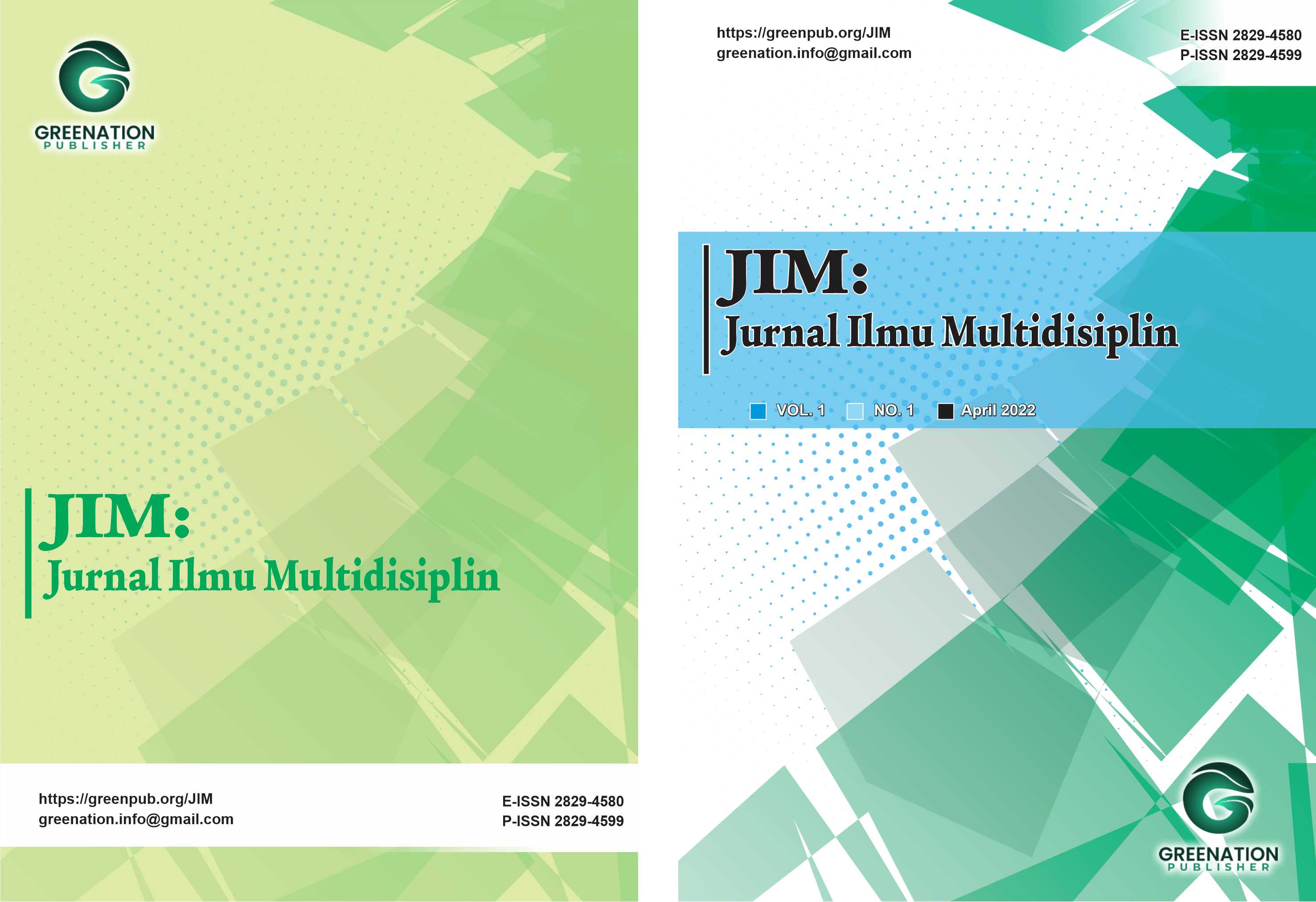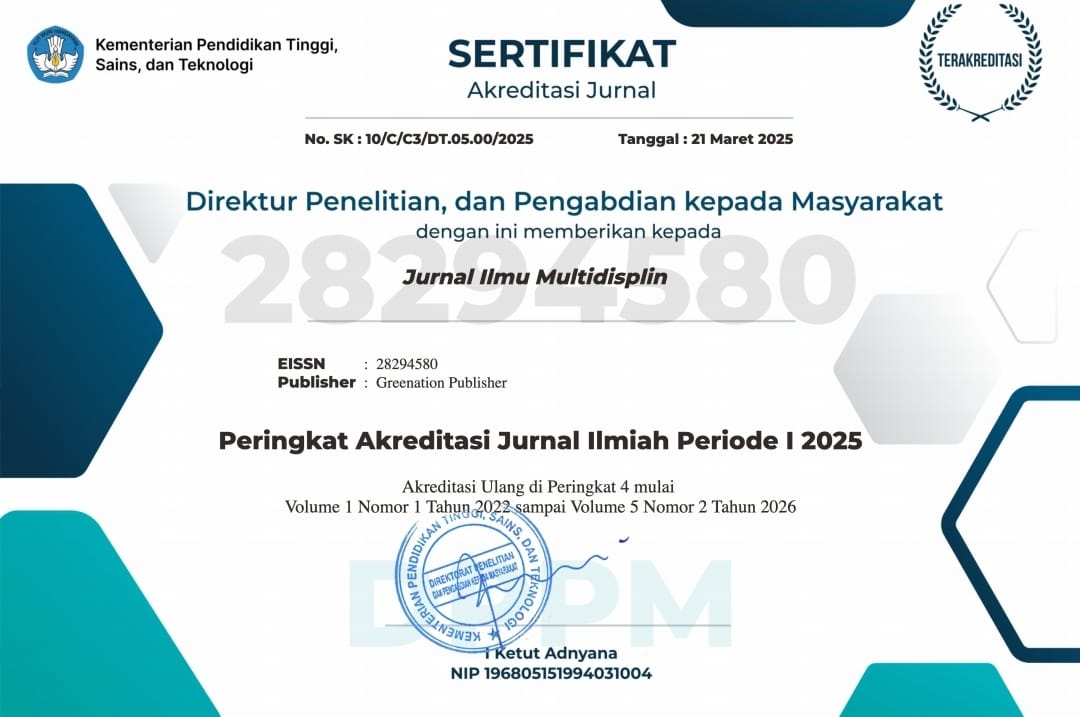Legal Implications of Amendment to Business Competition Law Provisions in Law Number 5 of 1999 After the Enactment of the Omnibus Law
DOI:
https://doi.org/10.38035/jim.v4i4.1323Keywords:
Impact, Business Competition, Job Creation, Commercial CourtAbstract
Law Number 11 of 2021 on Job Creation changes the regulations related to business competition law as regulated in Law Number 5 of 1999 on the Prohibition of Monopolistic Practices and Unfair Business Competition. This amendment aims to improve the business competition climate to generate a positive impact on business actors and the community. Various issues and the development of changes to this law are presented in the form of seminars and scientific studies that carry topics on changes in business competition that need to be corrected immediately. After the enactment of the Omnibus Law, which changes the five articles of business competition, it needs to be studied with the main objective of business competition itself. This study will start by looking at the background and discussing the impact after the enactment of the new law for business actors, the community, and all related parties such as regarding the change in filing an objection to the Commercial Court. The method used in this paper is normative juridical by analyzing the applicable law and the impact that occurs. And the research approach used is a statutory approach and a conceptual approach. The result of this paper is that this change does not completely solve the problems that occur in the realm of business competition.
References
Andi Fahmi Lubis, Hukum Persaingan Usaha Antara Teks dan Konteks, Jakarta: Deutsche Gesellschaft für Technische Zusammenarbeit, 2008.
Binoto Nadapdap, Hukum Acara Persaingan Usaha, cet 1, Jala Permata Aksara, Jakarta, 2009.
Frank Fishwick, Seri Strategi Manajemen Strategi Persaingan, Jakarta: PT. Elex Media Komputindo, 1995.
I Made Sarjana, Pokok-Pokok Hukum Acara Persaingan Usaha, Bali: Fakultas Hukum Udayana, 2016.
Maria Farida Indrati S, Ilmu Perundang-Undangan: Proses dan Teknik Pembentukannya (dikembangkan dari Perkuliahan Prof. Dr. A. Hamid S. Attamimi, SH.), Yokyakarta:Kanisius, 2007.
Agus Iskandar, Kewenangan Pengadilan Niaga Dalam Penyelesaian Sengketa Bisnis, Jurnal Pranata Hukum, Vol. 7, No. 1, Januari 2012.
Bahrian, “Studi tentang Prinsip-Prinsip Penempatan Pegawai pada Kantor Kelurahan Air Putih Samarinda Ulu”, Junrla Administrasi Negara, Volume 5, Nomor 3, 2014.
Mirwansyah, Masalah dan Hambatan Penegakan Hukum Praktik Monopoli dan Persaingan Usaha Tidak Sehat, Jurnal Justicia Sains - Vol. 02 No. 02, 2007.
Rio Satriawan, Rony Setyawan dan Taufik Dwi Paksi, “Analisis Kedudukan Komisi Pengawas Persaingan Usaha dalam Sistem Ketatanegaraan Indonesia”, Gema, 2015.
Simbolon, “Kedudukan Hukum Komisi Pengawas Persaingan Usaha”, Jurnal Mimbar Hukum, Vol. 2, No. 3, 2012.
Siti Anisah, “Permasalahan Seputar Tata Cara Pengajuan Keberatan terhadap Putusan KPPU”, Jurnal Hukum Bisnis, Vol. 24, No. 2, 2005.
Surya Mukti Pratama, Pengaturan Baru Keputusan Fiktif Positif Dalam Undang-Undang Nomor 11 Tahun 2020 Tentang Cipta Kerja Dan Kaitannya Dengan Kompetensi PTUN, Jurnal RechtsVinding Online, 2020.
Wafiya, Politik Hukum Pembentukan Undang-Undang Larangan Praktik Monopoli dan Persaingan Tidak sehat Jurnal Ilmu Hukum Vol. 8 No, 2014.
Law Number 11 of 2020 concerning Job Creation (State Gazette of the Republic of Indonesia of 2020 Number 245, Supplement to the State Gazette Number 6573).
Law Number 12 of 2011 concerning the Establishment of Laws (State Gazette of the Republic of Indonesia of 2011 Number 82, Supplement to the State Gazette Number 5234).
Law Number 48 of 2009 concerning Judicial Power (State Gazette of the Republic of Indonesia of 2009 Number 157, State Supplement Number 5076).
Law Number 5 of 1999 concerning the Prohibition of Monopolistic Practices and Unfair Business Competition (State Gazette of the Republic of Indonesia of 1999 Number 33, Supplement to the State Gazette Number 3817).
Regulation of the Supreme Court Number 3 of 2019 concerning Procedures for Filing Objections to the KPPU's Decision.
Supreme Court Regulation Number 1 Year 2019 concerning Electronic Court Case Administration.
Regulation of the Business Competition Supervisory Commission Number 1 of 2020 concerning Electronic Case Handling
Faisal H. Basri, Kebijakan Persaingan di Era Otonomi, diakses pada https://www.hukumonline.com/berita/baca/hol2735/kebijakan-persaingan-di-era-otonomi/, 25 Mei 2001.
Downloads
Published
How to Cite
Issue
Section
License
Copyright (c) 2025 Christopher Hartono

This work is licensed under a Creative Commons Attribution 4.0 International License.
You are free to:
- Share— copy and redistribute the material in any medium or format
- Adapt— remix, transform, and build upon the material for any purpose, even commercially.
The licensor cannot revoke these freedoms as long as you follow the license terms.
Under the following terms:
- Attribution— You must give appropriate credit, provide a link to the license, and indicate if changes were made. You may do so in any reasonable manner, but not in any way that suggests the licensor endorses you or your use.
- No additional restrictions— You may not apply legal terms or technological measures that legally restrict others from doing anything the license permits.
Notices:
- You do not have to comply with the license for elements of the material in the public domain or where your use is permitted by an applicable exception or limitation.
- No warranties are given. The license may not give you all of the permissions necessary for your intended use. For example, other rights such as publicity, privacy, or moral rightsmay limit how you use the material.



























